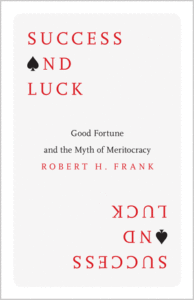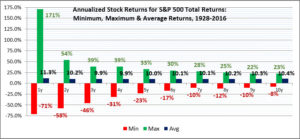 During a recent episode of the Question of the Day podcast, James Altucher and Stephen Dubner discussed the state of professional writing and what advice they would give to aspiring writers. Paraphrasing Dubner, who is co-author of the wildly successful Freakonomics series of books, says he finds more pleasure in producing things like podcasts versus long-form writing. Dubner also notes that he rarely finished non-fiction books these days given that their main point is usually laid out in the first few chapters making finishing the book unnecessary.
During a recent episode of the Question of the Day podcast, James Altucher and Stephen Dubner discussed the state of professional writing and what advice they would give to aspiring writers. Paraphrasing Dubner, who is co-author of the wildly successful Freakonomics series of books, says he finds more pleasure in producing things like podcasts versus long-form writing. Dubner also notes that he rarely finished non-fiction books these days given that their main point is usually laid out in the first few chapters making finishing the book unnecessary.
This exchange struck me because at the time I was reading Robert H. Frank’s Success and Luck: Good Fortune and the Myth of Meritocracy. Frank’s book checks in at eight chapters and a brisk 149 pages, not including two appendices. I found the book to be a worthwhile especially in light of my interest in the role of luck ever since reading Michael Mauboussin’s influential book The Success Equation: Untangling Skill and Luck in Business, Sports and Investing.* While the focus of the two books is different the message is the same: luck plays a significant (and overlooked) role in our lives.
Anyone who has been involved with the markets for any period of time will recognize that luck, both good and bad, has played a role in their returns. Anyone who was unlucky enough to start investing in 1929, 1965 or even 2000 would experience long stretches of time in which their equity investments produced little (or no) real returns. It is hard to attribute this generational experience to anything other than (bad) luck. The fact is that the stock market owes you nothing.**

Source: Virtus Investment Partners
If the stock market owes us nothing then what are the three steps to ‘instant alpha’ I teased in the title? First let’s establish something. Money in and of itself will not make you happy. The capital you generate through your lifetime is there to help you life a “richer, fuller life.” Not one obsess by the accumulation of ever larger brokerage balances. In that light the following three steps will generate you some ‘alpha’ no matter what the stock market does.***
Step One: Acknowledge the role of luck in your (financial) life
As noted the stock market will do what it does whether you, personally, are invested or not. However if you are lucky enough to have saved a sum that makes investing feasible you are already ahead of the game. Simply having been born in a developed country and being able to cover a financial emergency means you are in global sense quite fortunate. This says nothing about all the other aspects of your life but it is a good start.
There is also reason to believe that we do have more control over our lives than commonly thought. Richard Wiseman author of The Luck Factor: Changing Your Luck, Changing Your Life: The Four Essential Principles talked about how lucky people think differently than unlucky people:
One way is to be open to new experiences. Unlucky people are stuck in routines. When they see something new, they want no part of it. Lucky people always want something new. They’re prepared to take risks and relaxed enough to see the opportunities in the first place.
We may have no control over what the markets do but we do have some control about how approach them. Having an open, growth mindset makes it possible to recognize opportunities when they arise.
Step Two: Have an attitude of gratitude
I know, I know. Gratitude is the new mindfulness. It seems that everywhere you go you see talk about the benefits of gratitude. But like mindfulness it is all likely true. The best thing is that making gratitude a greater presence in your life costs you nothing. Robert Frank writes:
Gratitude, in particular, is a currency we can spend freely without fear of bankruptcy. Indeed, if you talk with others about their experiences with luck, as I have, you may discover that with only a little prompting, even people who have never given much thought to the subject are surprisingly willing to rethink their life stories, recalling lucky breaks they’ve enjoyed along the way. And because these conversations almost always leave participants feeling happier, it’s not hard to imagine them becoming contagious.
Gratitude has nothing to do (directly) with becoming a better investor. What gratitude does is increase our appreciation for what we already have.
Step Three: Plan for the worst, but hope for the best
Bringing the discussion back around to investing we need to recognize that investing for the long run is a perilous task. As Brian Portnoy notes:
There is a steady stream of evidence suggesting that even in today’s lower growth world, investors still expect about 10% per year returns. I happen to think that’s unrealistic, but for now, what I hope this exercise demonstrates is that for volatile assets like stocks, there is a ton of variability—especially in shorter time periods. Because we tend to be happiest when future reality matches current expectations, we should all make the best effort to accept that there’s a certain level of randomness to market returns. Sometimes unpleasant truths crowd out comforting beliefs.
Therefore coming to terms with the potential variability of even long run returns makes sense. Saving more and taking steps to invest in evidence-based approach will do more to ensure investment success than any attempt to generate investment alpha. Many investors unfortunately do just the opposite. They bet on lotteries, both real and figurative, and ignore the wealth of evidence that focuses on sound investment principles.
We as investors cannot forecast the future. All we can do is make our own actions jibe with history and the evidence. This by its nature recognizes the role luck, both good and bad, can have in our lives. Recognizing that luck plays a significant role in our lives can be disconcerting.
It is disconcerting because it makes us feel fallible and not wholly in control of our destiny. However, that is reality. Recognizing the role of luck shouldn’t dissuade us from taking action. Luck works both ways. An open, engaged grateful attitude is the only approach that works in both scenarios.
Notes:
*I included The Success Equation: Untangling Skill and Luck in Business, Sports and Investing in this Amazon list of “investing books that go above and beyond.”
**This phrase has been repeated so often on Wall Street that it is difficult to ascertain who first said it.
***Yes I know I am stretching the definition of alpha to suit my rhetorical needs.
More on Success and Luck:
[article] Why Luck Matters More Than You Think by Robert Frank. (The Atlantic)
[podcast] Robert Frank on Success and Luck. (EconTalk)
[podcast] Robert Frank on the ‘Myth of Meritocracy.’ (Masters in Business)
[excerpt] Chapter 1 from Robert Frank’s Success and Luck: Good Fortune and the Myth of Meritocracy. (Big Picture)








